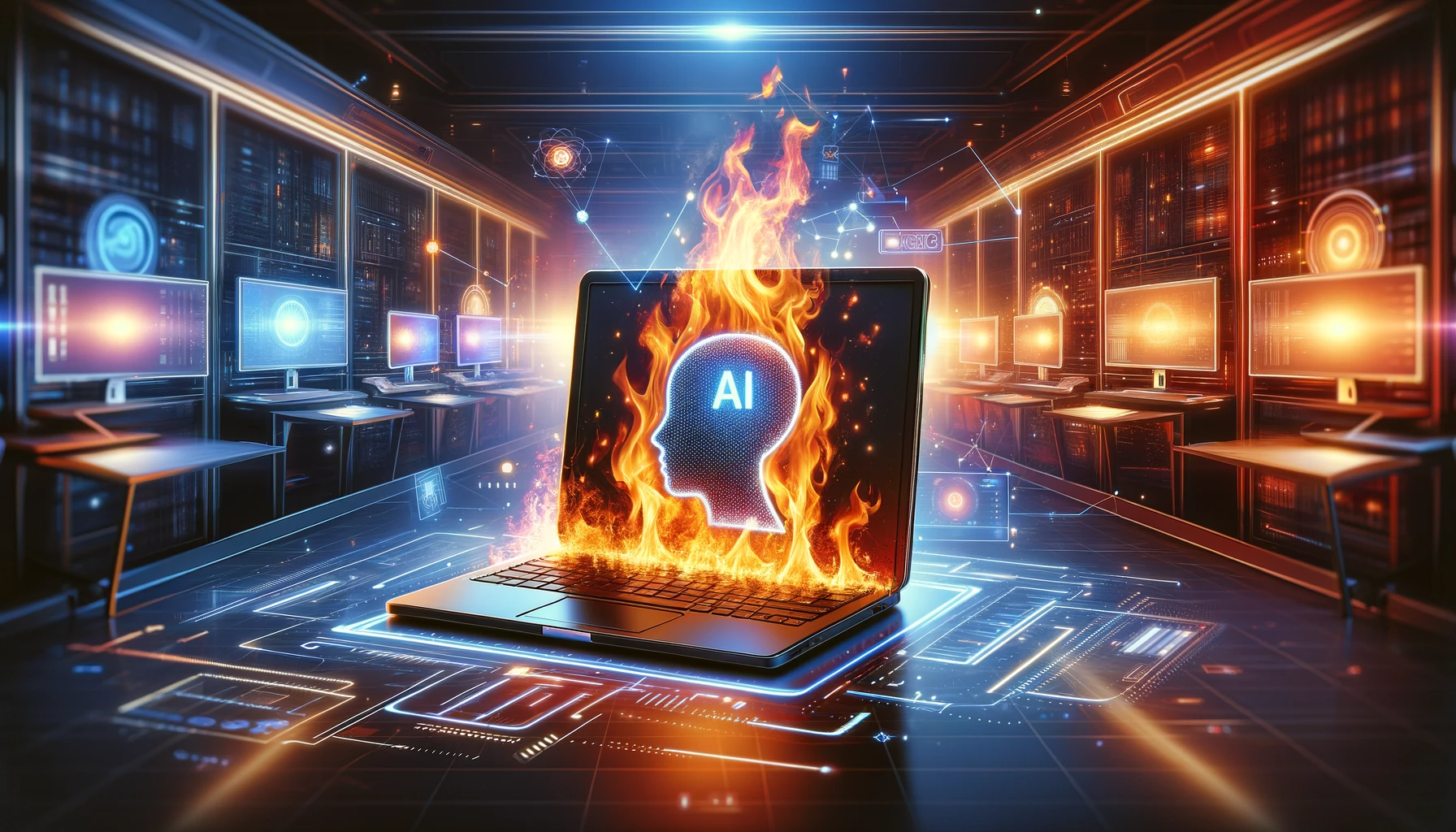AI hardware in the B2B sector: A futuristic trend?
System houses and IT service providers are often at the forefront of technological developments. With the increasing demand for Artificial Intelligence (AI), so-called AI notebooks and PCs could become increasingly popular in the B2B sector. But the question arises: Are these devices really a leap into the future or just a well-marketed trend?
What makes AI hardware special?
The difference between conventional hardware and AI-optimized hardware lies mainly in the integration of special processors and components that are optimized for AI applications. For example, Intel Core Ultra processors contain a Neural Processing Unit (NPU) that enables energy-efficient AI acceleration and aims to make AI applications more sustainable. The processors take the combination of performance cores (P‑Cores) and efficiency cores (E‑Cores) to a new level. They are specifically designed to handle AI-based workloads more efficiently through improved coordination between the P‑Cores and E‑Cores. This leads to increased performance while optimizing energy consumption for demanding AI applications.
Sophisticated marketing or genuine innovation?
At CES 2024, numerous AI PCs and notebooks were presented by major manufacturers such as Intel, AMD, Lenovo, HP, Asus, Acer, and Samsung, and the new hardware trend is also gaining traction in the German B2C market. For example, Aldi supplier Medion recently introduced AI notebooks. But do these products live up to their promises? Alexander Stikel, Junior IT Systems Engineer, hits the nail on the head: “The term ‘AI’ in relation to hardware is actually misleading. Although the advertised devices are powerful, a single device is not sufficient to operate one’s own AI models. Instead, dedicated servers are required, which are specialized servers configured exclusively for AI calculations. Therefore, the hardware of the devices marketed as AI notebooks or AI PCs is not AI itself, but rather optimized to work efficiently with AI tools.”

Practical implications for system houses
The trend towards AI-optimized hardware presents a twofold challenge for system houses. On the one hand, they need to understand and evaluate the technical aspects and benefits of these devices in order to advise their customers appropriately. On the other hand, it is crucial to set realistic expectations. While AI-optimized devices can accelerate certain applications, they do not replace employees or complete AI systems. Therefore, system houses need to differentiate between actual technical advancements and marketing strategies and advise their clients based on these insights.
Future prospects: AI notebooks and AI PCs
Following the motto “What is not yet, may still become,” it is still worth keeping an eye on the developments of AI-optimized hardware, as there is no doubt that these devices will continue to be developed and optimized in terms of performance. It is conceivable that AI-optimized hardware will increasingly be integrated into complex business processes to handle data-intensive tasks. These developments could not only change the way we work but also fundamentally transform business models in the IT sector.

